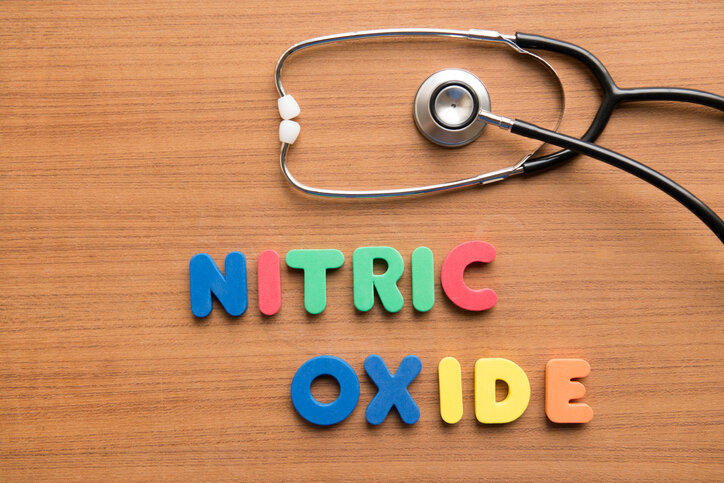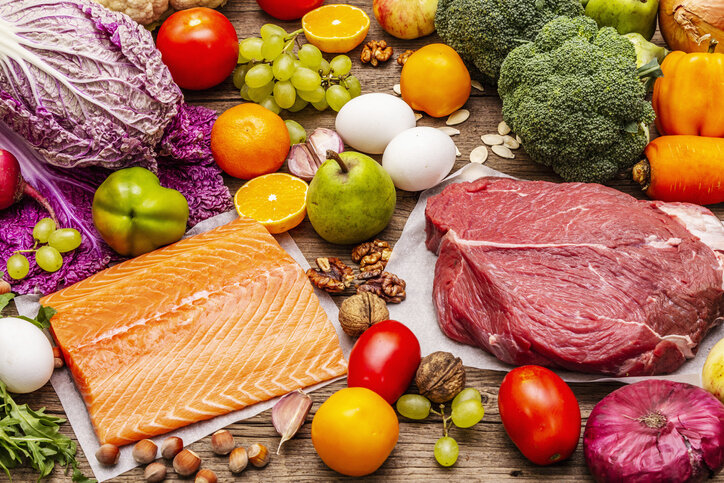Plaque, Cavities, Nitrates, and Blood Pressure
Most of us assume that dental plaque is terrible; it causes cavities and gum disease, and encouraging its eradication is widely accepted. Scientists have determined that plaque bacteria can ferment processed carbohydrates and sugars into acids that cause decay. But plaque has actually gotten a bad wrap. Did you know that today's diet contains an increasing range of fermentable carbohydrates, including highly processed starch-containing foods? These sugars are undoubtedly the most important dietary factors in the etiology of tooth decay.
Plaque Is Not Harmful In Many Populations
Observations of populations who eat diets high in unprocessed carbohydrates, even when they don’t brush, have little to no decay. 1 Indeed, our dental plaque has been residing in human mouths since the beginning, and archaeology has proven that it only causes problems when processed carbs enter the diet. You can read this post on carbs and plaque for more info.
Plaque,Ammonia, and Less Decay
Researchers have determined that the bacteria in our plaque produce many substances other than acids. Acids are responsible for tooth decay and these other substances are beneficial for health. For example, our plaque produces ammonia from the breakdown of proteins. Arginine and urea are the two byproducts of protein breakdown responsible, and urease is the enzyme the bacteria use to make ammonia. 2 Believe it or not, the small amount of ammonia is not harmful. Indeed, researchers studied 93 subjects, and the group with no decay produced three times more ammonia. Their plaque made three times more urease than those with active decay as well. The researchers proposed that ammonia made by urease-producing bacteria could be beneficial in reducing tooth decay. 3 Further research has determined that the urease-mediated production of ammonia can cause the plaque to be less acidic, which can inhibit the development of dental caries.
Are Plaque Transplants In Our Future?
One of the significant ammonia producers is A. naeslundii. It is one of the first organisms to colonize the mouth and constitutes a substantial proportion of dental plaque.4 Researchers are hopeful that the ability to genetically engineer plaque bacteria that can lower plaque acidity may eventually prove helpful for controlling cavities. 5 The capacity of this bacteria to neutralize acid is robust. Researchers added strong acids in one experiment, and the bacteria could still raise PH to 7, which is neutral. Even when the acid was strong enough to kill the bacteria, it neutralized the acids for up to one hour before death. 6 Wouldn't it be nice if we could produce an oral probiotic that concretely prevents decay?
Nitrates, Nitric Oxide, and Blood Pressure
Nitrates are commonly found in our foods, and it is not bad for us as once believed. Interestingly, researchers have found that the bacteria in our plaque can reduce nitrates to nitrites, and our stomach acid is able to convert the nitrite to nitric oxide. Nitric oxide (NO) acts as an antimicrobial agent against harmful bacteria and stimulates blood flow in the stomach. Moreover, nitrite is absorbed into our blood, where it serves as a NO source to lower our blood pressure, improve cerebral blood flow, improve glucose regulation, and mitochondrial function. 7,8 Most amazingly of all, 25% of nitrate in circulation is actively taken up by the salivary glands. As a result, its concentration in saliva can increase 10 to 20-fold. Believe it or not, our saliva contains much more nitrate than a hot dog! 9 This nitrate is used to generate nitric oxide through our plaque, stomach acid, and other processes in the body. The blood-pressure-lowering effects of dietary nitrate are entirely eliminated with an anti-bacterial mouthwash. Luckily, plaque regrows within twenty-four hours, and the production of NO resumes.
In the mouth, some of the nitrite produced is reduced to NO by other bacteria. It has potent antimicrobial activity against some gum disease-causing oral bacteria such as Porphyromonas gingivalis, Aggregatibacter actinomycetemcomitans, and Actinomyces israelii. These findings have scientists looking into the potential usefulness of NO as a new substrate for preventing and treating gum disease. 10
How We Can Naturally Prevent Decay and Gum Disease
I have written about how we develop tooth decay and gum disease by ingesting processed carbs here, here, and here. Minimizing them is central to reducing tooth decay, gum disease, and many other health problems. Another item to remove from your diet is linoleic acid from seed oils. It promotes inflammation that can promote gum disease. More on how to do this can be found here. Animal-based foods contain excellent sources of high-quality protein needed for the nitrogen cycle and the production of NO. They are generally more nutrient-dense than plant-based sources. However, many vegetables contain nitrates, especially those grown using nitrogen-containing fertilizers. Celery and beets are two of the best sources. For a more complete list, watch this video. Do not ditch your blood pressure medication in exchange for celery! In short, try to stick to a paleo-template diet for overall good health.
I have stated that removing plaque temporarily deactivates the nitrogen cycle, but I recommend having two professional cleanings a year. I am not a fan of mouth wash, and less so for antimicrobial ones unless prescribed by your dentist. I also maintain that toothpaste is optional, as mechanical removal of excess plaque is adequate when the diet is proper, as described above. If you like using toothpaste, I recommend Primal Life Organics products.





